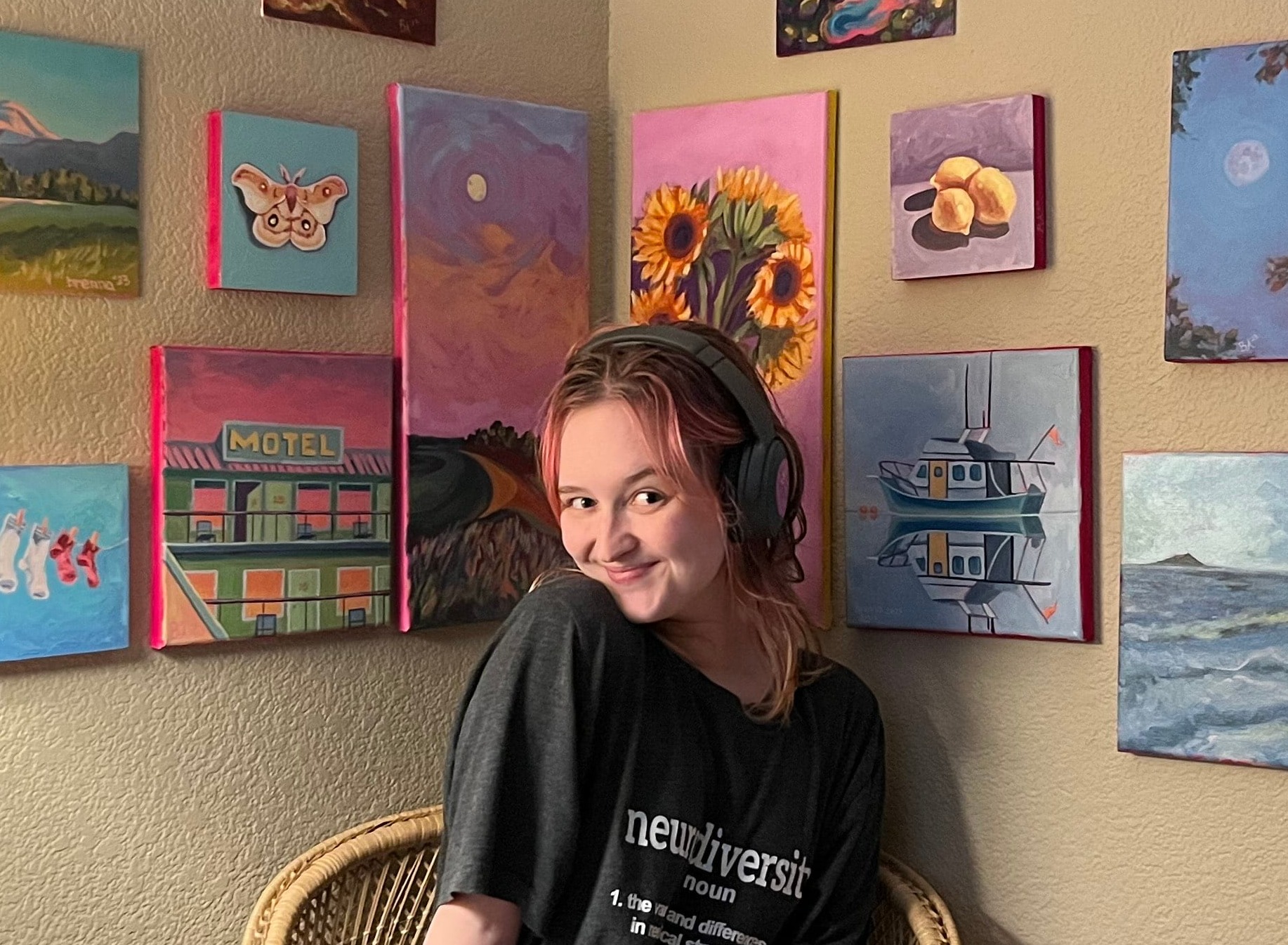Photo testimonial: Years of diagnostic uncertainty facing Ehlers-Danlos Syndrome
Published Feb 6, 2019 • Updated Jun 6, 2019 • By Louise Bollecker

Delphine's testimonial
Years of diagnostic uncertainty facing Ehlers-Danlos Syndrome
When I was a child, I was already in pain. Back pain, stomach pain. I thought it was the same for everyone and I slept at least 12 hours a night. My heart was beating too fast but no one seemed to care. The one day, a very significant event happened. While playing games with my cousin, I was hit in the stomach and experienced horrible pain on my left side. I was rushed to the emergency and they found out that my spleen was bleeding.
A progressive worsening of symptoms
School was a very stressful time for me. I was always extremely tired, I had problems concentrating and I was subjected to comments from my teachers. During recess, I cried because of the noise and the fact that there were too many children in the same space. During the medical visits, the nurses always found blood in my urine but never looked for a reason. However, I did get orthopaedic inserts directly. I am a little elastic in terms of flexibility. I have a lot of bruises everywhere for nothing but also because I often bump into furniture, doors, etc.
As a teenager, it began to get a lot more complicated and I systematically got hurt during sports classes. Tendonitis, sprains. My doctor would tell me me that I am "fragile" and "clumsy". I talked to a physiotherapist who told me that I am hyperlaxed so my ligaments are longer than normal. I started to do regular physiotherapy sessions for the same joints but I started to have asthma attacks when I ran when I don't even have asthma. Lately, I'm starting to have intestinal problems and my doctor told me that I have inflamed intestines.
At 19, my right knee "dropped" for no reason. I visited a series of orthopaedic surgeons who didn't understand what was wrong and couldn't find anything. My super physiotherapist has put me back on my feet with shock treatment but my knee continues to slip away and falls are now part of my daily life. Sometimes it's my right shoulder that "lets go" like that. Always a story of hyperlaxity. I asked my doctor to take a blood test but he refused.
"I understand that everything I'm going through is not normal at all."
I was able to work for three years. I was totally exhausted compared to my older colleagues. As soon as I sat at home, I fell asleep immediately. I used to constantly have wounds that I would hide and treat by myself. I thought that was normal.
At Christmas 2013, my left hip "lets go" while I am sitting. Nothing makes the pain go away and I can't walk properly. I change my GP who makes me take a blood test. The blood test was not good... There was a lot of inflammation so there was a suspicion of rheumatoid arthritis. Fear settles in and I understand that everything I am going through is not normal at all. The exams, the visits follow one another. Negative tests, I was put in the fibromyalgia box after being told that everything was in my head and that I was probably depressed.
After years of suffering, a diagnosis
Then begins my journey to reaching a diagnosis. I discovered hydrotherapy and learned to walk again, but my injuries continued. My physiotherapist put me in touch with another patient who is like me and he advised me to go to Brussels to a professor specialising in rheumatology. When he sees me and after the exams, there is no doubt that it is the Ehlers-Danlos Syndrome type hypermobile. That explained everything! Since then, I have had appropriate care. I do hydrotherapy 3 times a week, aquagym, I walk as much as possible, many orthotics, wheelchair, rollator, compressive clothing. I also discovered that I have epilepsy due to a venous malformation. For my heart, I now have appropriate treatment because it was beating much too fast. All my organs are affected. Daily life is painful, I never get a break. I have to adapt everything in order to be able to carry out my days successfully. Social, emotional and family life is highly impacted. Everything must be calculated and planned.
This testimonial is part of the graduation project of Gaëlle Regnier, a student in photography at the Agnès Varda School of Photography and Visual Techniques in Brussels. She chose chronic pain as the theme of this photo report to highlight the patients and their struggle.
Other testimonials
Claire: "Continuing to work with rheumatoid arthritis"
Alain: "The labor market excludes the chronically ill"
Marie: "Irritable bowel syndrome prevents people from living"
Onrella: "KISS syndrome - from Mother to Son"
Quentin: "Ulcerative colitis won't stop me from travelling"
Carenity

 Facebook
Facebook Twitter
Twitter



